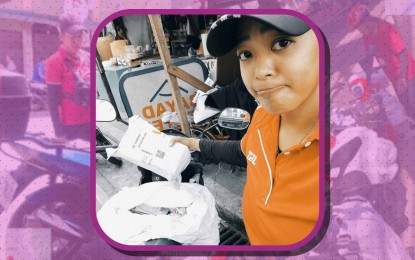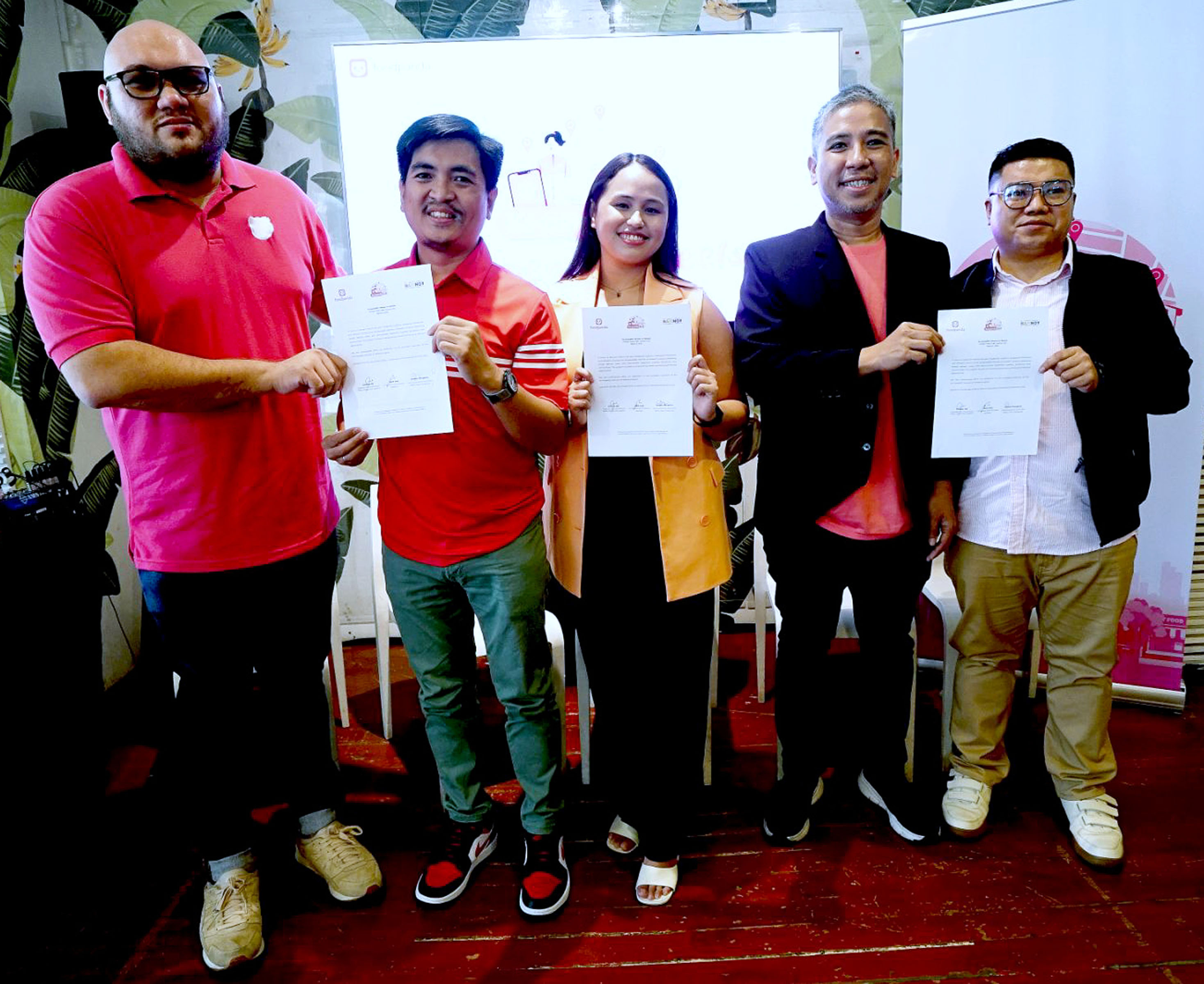
'SHE' CAN DO IT. Woman delivery partner Loriebeth Baldemor shares her inspiring story as she enjoys her work in a male-dominated field, while the country celebrates Women's Month. She urged fellow women and girls to keep thriving in their chosen field despite challenges and discrimination. (Contributed photos)
MANILA – Breaking gender barriers across income opportunities has been one of the challenges faced by many Filipino women, not to mention the struggle of thriving in male-dominated jobs.
Such include the emerging demand for the food and delivery services field which has spiked significantly since the height of the coronavirus disease 2019 (Covid-19) pandemic.
But for Loriebeth Baldemor, 33, a female delivery partner for almost a year, securing a slot in the industry is a win-win situation.
In a recent interview with the Philippine News Agency, Loriebeth said she finds the job fulfilling since she can do both her passion for motorcycle rides while earning a living.
"Hobby ko talaga mag-drive nang mag-drive. Nakakasawa kasi magmukmok sa isang kwadradong kwarto (It's my hobby to drive, staying in the four-cornered room may be boring)," she said.
She said the job allows her to broaden experiences as she navigates the roads in the Metro.
"Iba-ibang tao ang nakakasalamuha ko and (I'm meeting random people, and) [from] some of them, you can learn a lesson [in their] shared experiences, knowledge, and ideas," she added.
But since the industry seems to be on a continuous demand peak, she said hurdles are now considered a norm.
"Grabeng pagod, ulan, araw, nagta-trabaho pero iyon na iyon, kailangan din kumita. Iniisip ko na lang at least kahit pagod nag-e-enjoy pa din naman ako (It's very tiring [in] rain, sunshine, [we're still] working, but that's it, we need to make a living. I'm just bearing in mind that at least I got to enjoy the job)," she said.
The challenges, unfortunately, lie in encountering toxic stereotypes and limiting remarks.
Baldemor recalled having unwelcomed teasings or bullying, from male colleagues and worse, from loved ones.
"Most of the time dahil babae ka tingin nila ganun ka kadali sindak-sindakin. Minsan partner mo, mamaliitin kasi kababae mong tao ikaw ang nagtatrabaho (because you're a woman, you're easy to frighten. At times, your partner may look down on you because you're a woman yet working [in such a field])," she added.
On a larger scale, Baldemor is not alone in facing such a challenge, considering the slow progress of gender equality in economic participation worldwide.
According to the United Nations' Sustainable Development Goal (SDG) 5, nearly 2.4 billion women globally don’t have the same economic rights as men.
It added that it might take yet another 140 years to achieve equal representation in positions of power and leadership in the workplace at the current rate.
The Global Gender Gap 2023 results also showed a sobering 131 years to reach full parity.
Unfazed by this reality, Baldemor pressed on her desire to continue the decent work of her choice.
She even encouraged other women to keep thriving and face barriers head-on as they reach their dreams.
"Just believe in yourself, if there's discrimination around, just think they're just a monster and you are a hero in a movie. Kailangan mong manalo! (You need to win!)," she said.
Empowering opportunities
Some delivery service firms, meanwhile, launched programs to further empower female delivery partners in the country.
During the International Women’s Day celebration on March 8, Food Panda Logistics launched its “Ka-PANDABIZ: Women on Wheels" campaign.

The program aims to grant financial and business literacy classes, personal leadership training packages, and PHP100,000 worth of business capital to six select women delivery riders nationwide.
Food Panda Logistics Corporate and Government Affairs manager Chelsea Hill said the firm's gesture hopes to support inspiring women in the field.
"It really shows a lot that the work that's usually dominated by men is something that they can do also as a woman and there's no limitation to what they can do," she said.
Grab Philippines also initiated its Women Program under GrabAsenso.
The program aims to create livelihood and upskilling opportunities for their female driver-, delivery-, and merchant partners.
It also vowed continuous efforts to stride a trend of gender equity in its workforce in the country.
To date, the Philippines is among the top three countries, second to New Zealand and followed by Australia, with the highest parity in East Asia and the Pacific region, based on the Global Gender Gap 2023.
The country also ranked 16th globally, achieving an overall 79.1 percent gender parity. (PNA)
